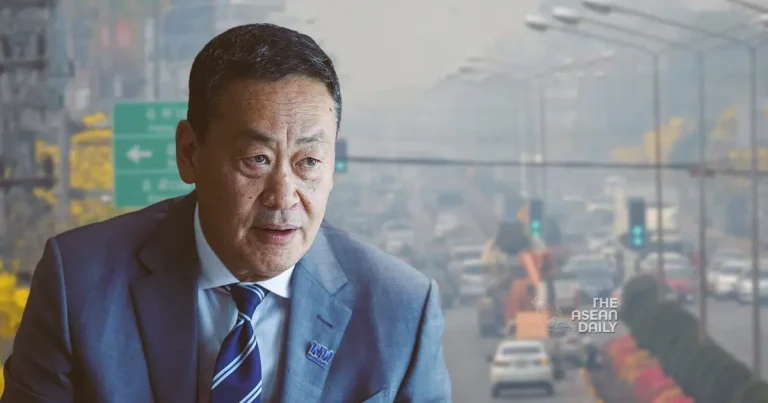12-1-2024 (BANGKOK) To address the persistent air pollution issue in Chiang Mai, Prime Minister Srettha Thavisin has pledged to promote electric mass transit during his recent two-day visit to the northern province. Mr. Srettha highlighted improvements in air quality since his last visit on Nov 28, noting a significant reduction in fine particulate matter smaller than 2.5 microns (PM2.5) in the provincial capital compared to the previous year.
The alarming situation in Chiang Mai had reached a critical point in April, with 302 hotspots detected by the Geo-Informatics and Space Technology Development Agency (Gistda). This dire air quality situation had adversely affected tourism, deterring both local and foreign visitors due to health concerns.
To address these challenges, the government, in collaboration with local authorities, has implemented short to long-term solutions to demonstrate their commitment to tackling the air pollution problem. The Transport Ministry, in particular, is now planning to enhance the province’s mass transportation system as part of the comprehensive strategy to reduce PM2.5 emissions caused by traffic congestion.
Mr. Srettha emphasized the need for a rapid mass transit system in Chiang Mai, proposing the introduction of a monorail service to benefit local commuters and boost the economy. He outlined the government’s focus on improving transportation infrastructure, with Transport Minister Suriya Jungrungreangkit presenting various development projects during the visit.
One of the proposals involves replacing the current mass transport service, represented by red pickup trucks known as songthaew daeng, with electric vehicles (EVs). Minister Suriya also suggested the construction of an outer ring road spanning approximately 53km, linking Chiang Mai Airport to popular tourist sites to alleviate congestion within the city.
In addition to these initiatives, plans include the development of Lanna Airport, a second airport for Chiang Mai, situated in the San Kamphaeng district and Ban Thi district in neighboring Lamphun province. The Transport Ministry envisions a comprehensive tourist bus service to seven popular sites, such as a night safari, Royal Park Rajapruek, and Queen Sirikit Botanic Garden, with the Land Transport Department tasked with identifying tour bus operators for the service.
Expressing his support for the ministry’s projects, Prime Minister Srettha endorsed the well-planned policy as a means to enhance public transportation services and benefit the province’s tourism sector. Furthermore, he announced plans to engage with Hun Manet, the Prime Minister of Cambodia, to discuss strategies for reducing PM2.5 levels resulting from agricultural burning.
As of Thursday, Gistda reported that 10 provinces were experiencing red-coded pollution levels, signifying seriously harmful air quality. The government’s proactive measures aim to address these challenges and create a sustainable solution for Chiang Mai’s environmental well-being.




